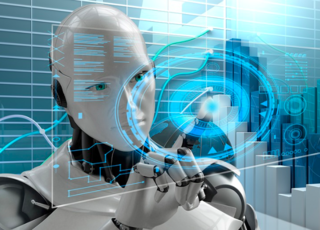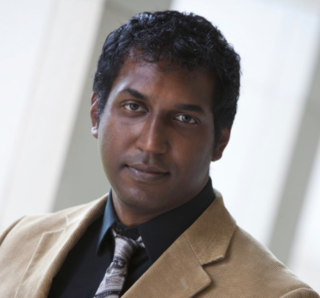Artificial Intelligence
The Theology of Artificial Intelligence
A scientist and evangelical Christian is urging theologians to explore AI.
Posted May 10, 2019
No longer a topic for science fiction, the power of artificial intelligence is already reshaping our lives in ways that were unimaginable just a couple decades ago. AI goes well beyond self-driving cars, Facebook ads, and robots that can run obstacle courses. Your email client can respond to messages for you; your preferred music provider will customize your playlist; and Google Translate is improving by learning from its millions of users, rather than waiting around to be programmed. In the US, courts are even using AI-trained algorithms to decide the most effective sentences and parole conditions for offenders. (A troubling development, to be sure.)

It can all sound very scary. Keep in mind, though, that almost all of this progress on artificial intelligence is on the performance of specialized tasks, data collection, or predictive algorithms. The type of AI that is particularly important now is often called "machine learning." This branch of AI includes powerful computer programs dedicated to solving specific problems, but these algorithms will not grow on their own and consider other kinds of problems to tackle. In other words, there is not even an inkling of "general intelligence" in the machine learning tools that are being developed at a dizzying pace around the world. The robot that jumps the hurdles will not stop and think about what the hurdles are made of. The computer that drives the car will not stop and question the ethics of allowing a crowd-skipper into the exit only lane at the last minute.
But what happens when they do? The Southern Baptist Convention recently put out a lengthy policy statement about the Christian moral principles that are at play in the field of artificial intelligence. Since I am not an adherent of that religion, I would not have even noticed. However, Dr. S. Joshua Swamidass, a biomedical scientist and AI researcher, just published an op-ed in the Wall Street Journal urging the Southern Baptist Convention to slow down and first engage with the field of artificial intelligence before starting to develop theological and doctrinal claims about it. After all, the scientific field is still in its infancy, but once doctrinal claims are promulgated, they begin to harden and become entrenched in the culture of the denomination. That is what Dr. Swamidass is hoping to avoid.

In addition to being an accomplished physician-scientist, Dr. Swamidass is also an evangelical Christian, so his is a friendly voice from within the community. He also knows what he's talking about when it comes to AI. His work on how AI is revolutionizing drug discovery was recently discussed in the pages of The Scientist. I have also published work on machine learning and I heartily endorse Swamidass's message. While careful oversight is vital, artificial intelligence holds enormous potential for the betterment of the human experience. Religious organizations speaking out against this technology may end up looking very short-sighted.
The point that Swamidass is making is that the Southern Baptist Convention, and indeed any organization preparing to take positions on artificial intelligence, would be well served by exploring the potential and the pitfalls of AI with the scientists that work on it before taking any hard stances. The fear and dread that AI often inspires are usually based on a comic book version of the reality. (Literally!) So, too, are the theological challenges to the notion of human personhood. The time for religious statements may indeed come, but shouldn't the doctrinal proclamations be informed by the fullest scientific understanding possible? As Swamidass points out, most of the signatories to the SBC proclamation are pastors and theologians. A couple are AI technologists, and none are scientists.
Swamidass and I approach the profound questions of human life from very different starting points, but when it comes to AI, we have ended up in the same place. Institutions, governments, and organizations, both religious and secular, should take the time to familiarize themselves with what AI research has the power to do. They should listen and learn from AI scientists themselves, rather than basing their conclusions on overhyped press and unfounded fears. This exciting new science holds the potential to advance some of the very values that the Southern Baptist Convention holds dear. We may find that AI is fertile common ground for the religious and the secular, as it has been for Swamidass and me.
References
S. Joshua Swamidass. "Evangelicals Take On Artificial Intelligence." The Wall Street Journal. 10 May 2019.
Nogrady, B. "Artificial Intelligence Shakes Up Drug Discovery." The Scientist. 01 May 2019.


